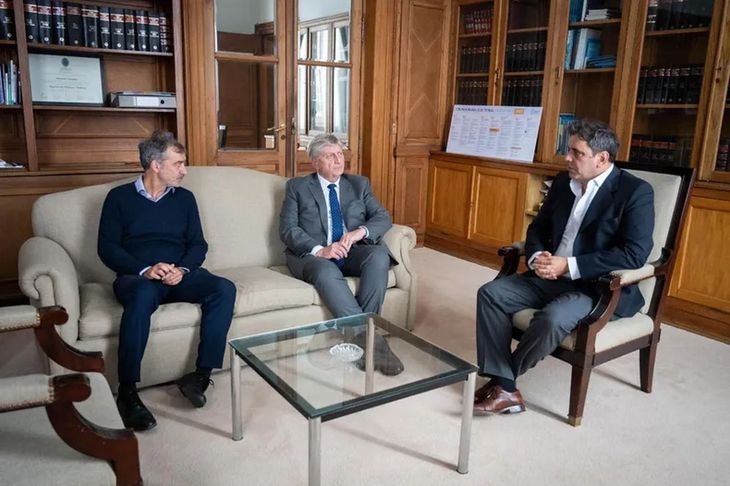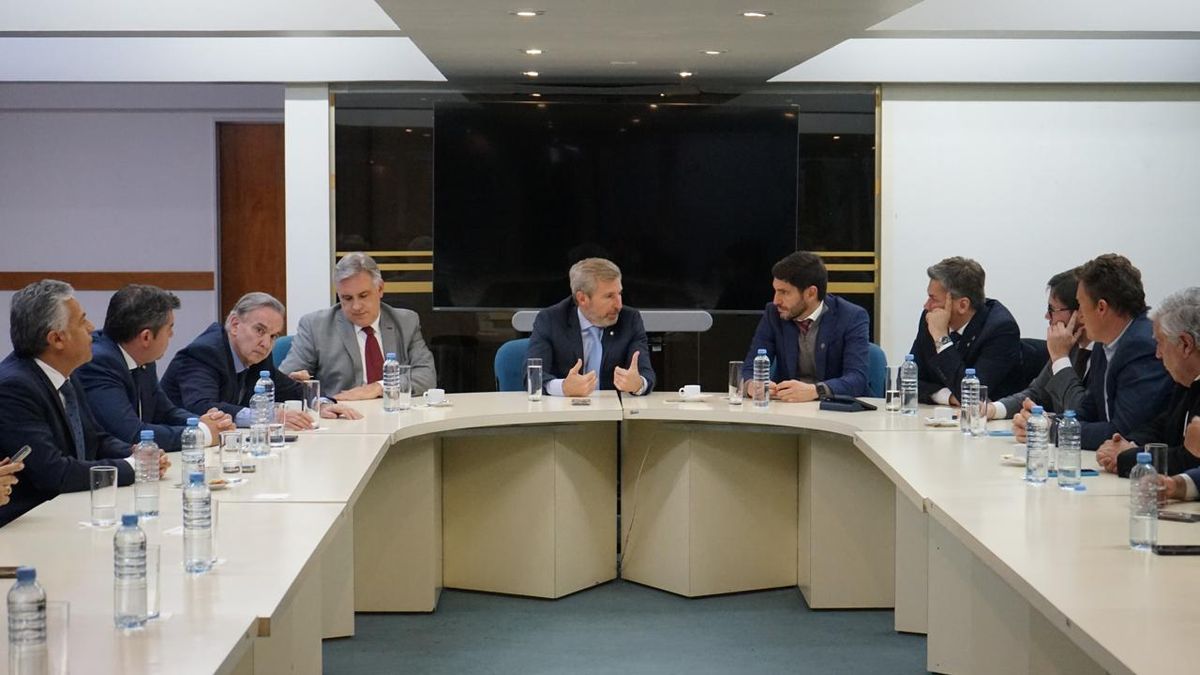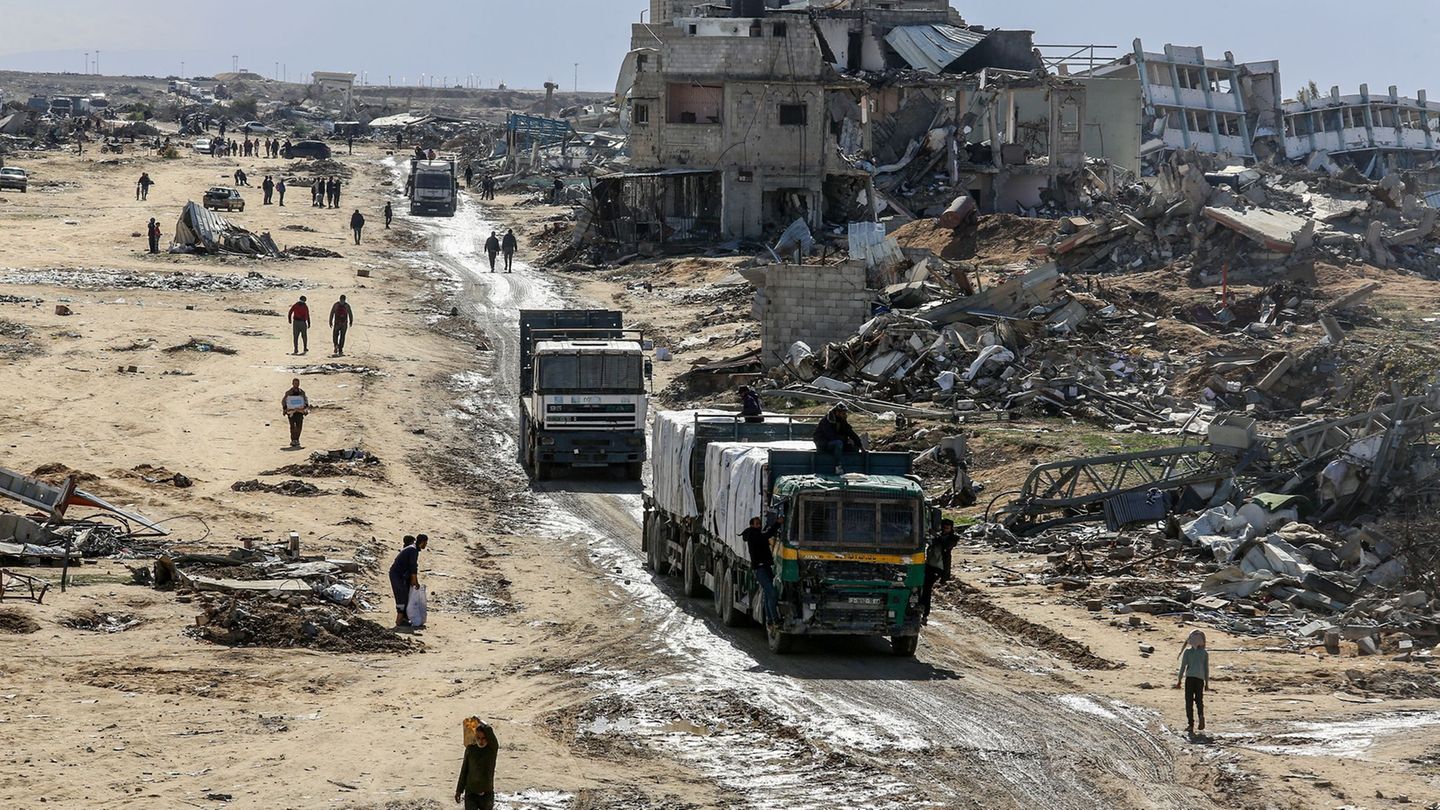The letter was signed by Alfredo Cornejo (Mendoza), Leandro Zdero (Chaco), Carlos Sadir (Jujuy), Gustavo Valdés (Corrientes), Jorge Macri (CABA), Claudio Poggi (San Luis), Marcelo Orrego (San Juan), Maximiliano Pullaro (Santa Fe) , Rogelio Frigerio (Entre Ríos) and Ignacio Torres (Chubut) reiterates the claims for pension funds, debts from the 2017 fiscal consensus, the need to share the fuel tax and the elimination of the hierarchical positions of the exAFIP.
Budget: governors take the fight to Congress
In parallel, the leaders took the fight to Congress. For example, with dogwood to head, the exJxC demanded a meeting with Francos and the Minister of Economy, Luis Caputoone of the architects of the 2025 Budget project. “What they ask for is quite reasonable and they don’t want to give it,” Provincial sources commented to this medium about the points agreed upon by the governors.
From the PRO, in addition, they put on the table the claim of the City of Buenos Aires so that the amount assigned to the district appears in the “law of laws” as Federal Co-participation and not as a direct transfer. In parallel to that lift, There is also a request for the debt that was generated between the moment in which Alberto Fernández lowered CABA’s participation point by one point until when the Supreme Court reversed that measure.
Quorum of Deputies
Once again, the game between Javier Milei and the governors was exposed in the Chamber of Deputies.
Deputies
The Government, meanwhile, remains static: “The zero deficit is not negotiated.” This point, then, is where the conversation gets stuck. The action at this time moved to Congress. This Wednesday, deputies from the light opposition will try to request a special session to discuss the Budget. Although among their ranks they do not believe they will reach the two-thirds necessary to promote the initiative, it will serve to showcase the will of the provinces to advance the debate on the project sent by Milei. They intend, however, to make some modifications.
This Tuesday, different sectors tried to organize a session to discuss two major issues. The first of them, the project of “union democratization” pushed by the radical Martín Tetaz failed, not having the support of libertarians, Peronism or federal blocks.
The same thing happened later, when the event called by Unión por la Patria (UP), Miguel Pichetto’s space, Encuentro Federal, and Democracia Para Siempre, a group that splintered from the UCR, collapsed. Together they sought to overthrow DNU 846/2024, which enabled Minister Caputo to take on debt without the need to go through parliament. The lack of quorum, fueled by deputies who respond to various governors, prevented the debate and brought relief to the Casa Rosada. Now, as a counterpart, the provinces are waiting for a gesture.
For UP, the four deputies from Catamarca who answer to the governor were absent Raul JalilRicardo, from Santiago Daiveswith part of sick, and the Neuquina Tanya Bertoldi. Meanwhile, Democracy Forever showed the following empty seats due to pressure from the governors: Jorge Rizzoti (Jujuy), Melina Giorgi (Santa Fe), Manuel Aguirre (Currents), Marcela Antola (Entre Ríos) and Juan Carlos Polini (Chaco).
The block led by Pichetto, meanwhile, had Carlo from Cordoba absents Gutiérrez, Ignacio García Aresca and Alejandra Torres,All close to Martin Llaryora.
As has already happened in other issues, such as the retirement reform and the University Financing Law, The hand of the leaders was key. On this occasion, there were absences from the PRO and the UCR, in addition to seats that report to the ruling parties of Catamarca, Córdoba, Chaco and Santiago del Estero.
Peronism, between the opposition and dialogue
In the meantime, the leaders fly under the radar and try to cultivate a low profile, attending to domestic chores. From the Peronist camp, the most opposition leaders observe the discussion from afar. This Monday, for example, the Minister of Government of the province of Buenos Aires, Carlos Biancodenounced that the Nation took away from the district “a quarter of the Budget that corresponds to it.”
“The total owed by the national government to the people of Buenos Aires reaches 7.8 billion pesos. Among many others, these are debts in public works, in health programs, in funds that correspond to the Province of Buenos Aires and in the salaries of our police and education workers,” the official explained.
For his part, the pampas Sergio Ziliotto tried a rapprochement with the national government. Days ago, he held a meeting at the Casa Rosada with the deputy chief of staff, Lisandro Catalán, in which they agreed to coordinate a joint work table, with the aim of advancing agreements that allow La Pampa to collect the debts that the Nation maintains with the Province and the transfer of the PROCREAR housing operation.
Ziliotto Catalán.jpg

Sergio Ziliotto met with the Deputy Chief of Staff, Lisandro Catalán, and the Secretary of Provinces and Municipalities, Javier Milano.
“We were talking about the PROCRATE issue specifically, but we also addressed what has to do with the public works that in the province of La Pampa we have taken charge of through a provincial Law. We guarantee the continuation of public works, but we are here demanding the financing that the province of La Pampa provided to continue what was an obligation of the national government. “That is what we are demanding.”Ziliotto confided after the conclave.
At the same time, the Justicialist president warned that “a serious country cannot not have a budget“, and stressed that “what the provinces are asking for are resources that belong to us within the framework of a federal country, in which it is necessary to carry out a very important development of the Argentine Republic and we are trying to obtain resources to sustain the provision of public services”.
“Almost 100%, all essential public services, such as Health, Education, Security, Justice, are provided by the provinces and, in some cases, the provinces with the municipalities. We are willing, and we are doing so, to provide these services because there are people in the middle”, he stressed. “We want resources, it is almost a question of demanding federalism, it is not a nice little word, but we also have to permanently militarize it and see how we can modify the budget,” he concluded.
Source: Ambito
I am a 24-year-old writer and journalist who has been working in the news industry for the past two years. I write primarily about market news, so if you’re looking for insights into what’s going on in the stock market or economic indicators, you’ve come to the right place. I also dabble in writing articles on lifestyle trends and pop culture news.




